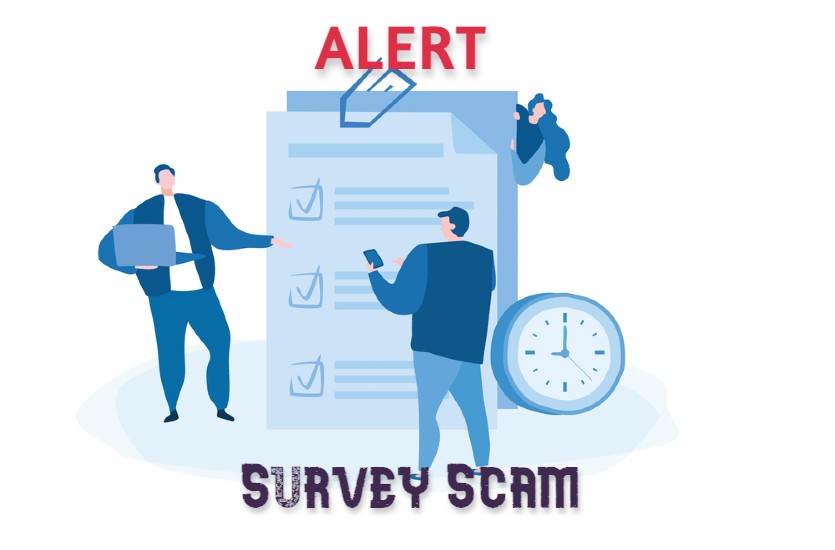Introduction to Online Survey Scams
In today’s digital age, online surveys seem like an easy and lucrative way to earn money, gift cards, or rewards by simply sharing opinions. However, with the growing number of online scams, it’s crucial to understand that not all online surveys are legitimate. Scammers often create fraudulent surveys that lure unsuspecting users into providing sensitive personal information, participating in fake opportunities, or even paying upfront fees. Understanding how to identify and avoid these scams is essential to safeguarding your personal information and online security.
How Online Survey Scams Work
Online survey scams often follow a familiar pattern. They entice users with the promise of rewards such as money, gift cards, or exclusive offers for simply filling out a survey. The survey may appear legitimate, featuring professional graphics, enticing titles, and even fake testimonials. Once you start filling it out, they may ask for personal details like:
- Full name, address, or phone number
- Credit card or bank account information
- Social Security number (in some extreme cases)
The scammers often use these details to steal your identity, make unauthorized charges, or sell your information to third parties. Other tactics include redirecting you to a fake website where you’re encouraged to sign up for “exclusive” offers or pay upfront fees.
Signs of an Online Survey Scam
Recognizing an online survey scam can be tricky, but there are common warning signs you can look out for:
1. Too Good to Be True Offers
If an online survey promises an unusually high reward for just a few minutes of your time, it’s likely a scam. Genuine survey companies offer modest compensation for a reasonable amount of effort.
2. Asking for Payment
Legitimate survey platforms never ask you to pay for participation. If you’re asked to pay a fee to “unlock” survey opportunities or gain access to rewards, steer clear of the offer.
3. No Company Information
Legitimate survey providers will typically have verifiable contact information, including a physical address and customer support details. If this is missing or unclear, it’s a red flag.
4. Suspicious Links or Unsolicited Emails
Scammers often send unsolicited emails with links to fake surveys. These emails may have typos, unusual formatting, or ask you to click on suspicious links. Always verify the legitimacy of these emails before clicking anything.
5. Requests for Personal or Financial Information
If a survey asks for sensitive personal or financial details, like your bank account number, credit card details, or social security number, it’s likely a scam.
Measures to Avoid Online Survey Scams
1. Do Your Research
Before engaging with any survey website or email, do a quick online search for reviews, complaints, and reports of scams related to that platform. Check websites like the Better Business Bureau or ScamAdvisor to find out whether a survey provider is legitimate.
2. Use Trusted Survey Platforms
Stick to well-known, reputable survey companies that are recognized for offering legitimate opportunities. Some reliable names include Swagbucks, Survey Junkie, and Pinecone Research. These platforms have a solid track record of paying users for their time.
3. Be Cautious with Your Personal Information
Never share sensitive information such as your Social Security number, credit card information, or bank details unless you’re certain the platform is legitimate and secure. Always check for secure (HTTPS) connections before submitting personal data.
4. Check for Secure Websites
Make sure that the website you’re engaging with has a secure connection (look for “HTTPS” in the URL and a padlock symbol in the address bar). This ensures your data is encrypted and reduces the risk of your information being intercepted.
5. Use Spam Filters and Email Security
Many online survey scams come through email. Use strong spam filters and be cautious when opening emails from unknown senders. Avoid clicking on links or downloading attachments from unsolicited emails.
6. Report Suspicious Surveys
If you come across an online survey that seems suspicious, report it to the platform hosting it. This helps protect other users from falling victim to scams. Many legitimate survey companies allow you to flag fraudulent surveys or websites.
7. Look for Privacy Policies
Reputable survey websites will have a privacy policy outlining how your information will be used and protected. Always read this before signing up to ensure your data is not being sold or misused.
8. Don’t Fall for “Too Good to Be True” Promises
If a survey promises huge rewards or says you’ve “already won” a prize, be skeptical. Legitimate surveys compensate users based on their time and responses, and they won’t offer unrealistic rewards.
Conclusion
Online survey scams may appear enticing at first, but they can lead to serious financial loss and identity theft. By being vigilant, conducting research, and adhering to the security measures outlined above, you can avoid falling victim to these deceptive practices. Always prioritize your privacy and security when engaging with online surveys, and remember that if an offer sounds too good to be true, it probably is.
Stay safe online, and trust your instincts when it comes to sharing personal information. With the right precautions, you can enjoy legitimate survey opportunities without falling prey to scammers.














